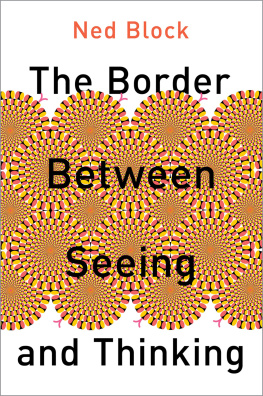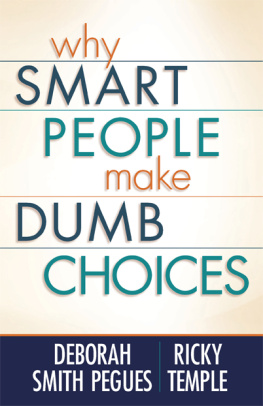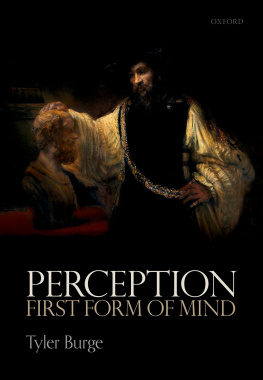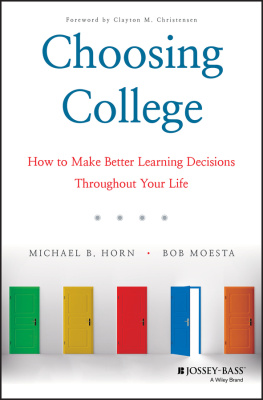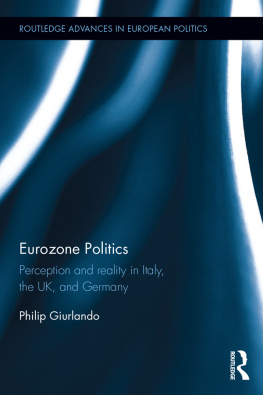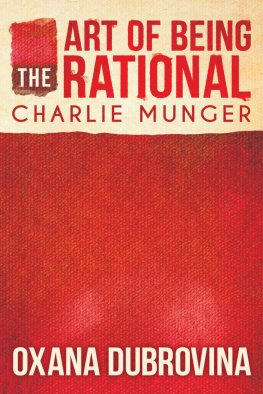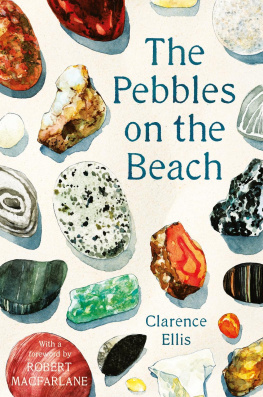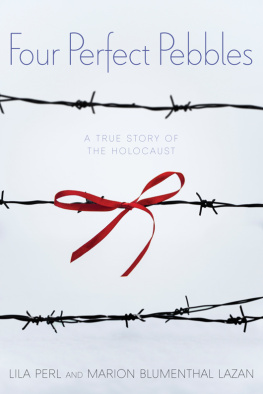PEBBLES
of
PERCEPTION
How A Few
Good Choices Make
All The Difference
Laurence Endersen
ISBN-10: 1502458578
ISBN-13: 978-1502458575
Published by Laurence Endersen.
First published 2014 (print and electronic)
Laurence Endersen 2014
All rights reserved.
With the exception of minor extracts where the author is duly acknowledged, no part of this book may be reproduced or transmitted in any form or by any means without the written permission of the author, including reproductions intended for non-commercial use.
Illustration and Production Design by Philip Barrett
www.blackshapes.com
Permissions
Extract from The Invitation By Oriah Mountain Dreamer from her book, THE INVITATION 1999. Published by HarperONE. All rights reserved. Presented with permission of the author.
www.oriah.org
To my friends, especially my best friend Kathy.
To Sarah, Laurence and Louise, who I hope will read this someday.

Contents
Acknowledgements 11
Introduction 13
PART I CURIOSITY 17
Chapter One: Is There a Better Question? 19
Chapter Two: Lifelong Learning 25
Chapter Three: Listening 33
Chapter Four: Incentives 39
Chapter Five: Consider the Context 45
PART II CHARACTER 51
Chapter Six: Start by Considering the End and the Opposite 53
Chapter Seven: Emotional Intelligence 59
Chapter Eight: Fear 67
Chapter Nine: Know Yourself, Be Yourself, Mind Yourself 75
Chapter Ten: Be Kind to Your Parents 83
Chapter Eleven: Sales, Negotiation and Influence 87
Chapter Twelve: Adversity 99
Chapter Thirteen: Be a True Friend 105
Chapter Fourteen: Simplicity 111
PART III CHOICE 115
Chapter Fifteen: Choosing a Career 117
Chapter Sixteen: The Ubiquity of Energy 123
Chapter Seventeen: Experiences 129
Chapter Eighteen: Where to Live 135
Chapter Nineteen: The One for Me 141
Chapter Twenty: Having Children 149
Chapter Twenty-One: Compound Gratification 157
Chapter Twenty-Two: Thinking 167
Chapter Twenty-Three: Full Circle 175
Appendix I Still Curious? 181
About the Author
Acknowledgements
I would like to thank the following people for their direct help with proofreading, their thoughtful suggestions and most of all their encouragement.
Alan Burke, Stan Carey, Alan Copps, Aidan Corcoran, Anne Marie Curtin, Kathy Endersen, Michelle Endersen (who kindly endured and enriched multiple drafts), John Finnegan, Leo Foley, Philip Frankling, John Forde, John Jeffery, Angela Kinnen, John Leahy, Paul McCarthy, Joe Molloy, Deirdre Morgan, Barry Murray, John OBrien, Patrick OBrien, David OFlynn, Valerie OFlynn, Ronan OHoulihan, Brian OKane, Brian OKelly, Angela OReilly, Niall OSullivan, Shane Parrish, Paul Reidy, Adrian Toner, and Ian Young
I appreciate each of you taking the interest and the time.
I want to particularly acknowledge Brian OKelly for showing me whats important, and Alan Burke, who provided me with the opportunity to pursue what I enjoy doing for a living.
Over the years I have also learned vicariously through the writings of others. You may recognise influences from some great minds. These are referenced where appropriate. Any omissions are not intentional. We are subliminally influenced more than we recognise. Mistakes are mine alone.

Introduction
T oo soon old, too late wise.
What if this didnt need to be the case?
In September 2007 I turned 40. One of my birthday gifts was a book written by Charlie Munger called Poor Charlies Almanack . For those of you who dont know Charlie Munger, he is best known as the straight-talking business partner of Warren Buffett. Together Charlie and Warren built one of the most successful investment companies in the world. They did it from scratch and they did it in a principled manner.
The Almanack lay untouched on my bookcase for three years before I finally took the time to read it. Studying it revealed the reflections of a man who has thought deeply about how the world works. I was so taken with the Almanack that I wrote to Charlie on my 43rd birthday to thank him for sharing his wisdom. I also committed to write a book myself before I reached 50. So here I am with a personal take on life as inspired by someone whose approach instantly resonated with me, you know the way something simply hits you between the eyes.
There were two big ideas that I took from Charlies work. The first is the value of understanding the main principles of a wide range of disciplines. These include law, science, maths, statistics, politics, economics, psychology, psychiatry and so on. Scientific principles and human behaviour combine in numerous ways. You dont need to be an expert, but there is immense value in understanding the cornerstones. In all disciplines a few big ideas carry most of the freight. The important thing is not to ignore any of the main disciplines, because life is one big bundle of interconnectedness. Your chances of understanding whats really going on are much better if you look at the world through a multidisciplinary lens. Decisions are wiser when we appreciate how the larger cogs turn.
The second big idea I took from Charlies work, and the inspiration for this book, is the importance of good choices. Just a few good choices can make all the difference.
Some of the material for this book came from the responses to the following question which I have been posing to anyone who will listen: Imagine you are dying and have no material wealth. You are allowed to pass on one or two pieces of thoughtful and useful advice to your young adult children. This is the only inheritance you can leave behind thoughtful advice that they will understand and apply in their lives. What would that advice be? The range of responses I received was fascinating. It was also quite a personal insight into the respondents. Their advice showed what they truly valued, what really matters. What would your advice be?
They say that you cant put a wise head on young shoulders. But can we not be a little more wise, a little earlier? This is our quest: to see if we can be smarter, earlier. Avoid the too soon old, too late wise camp and sign up for the wiser earlier expedition.
The lessons from life theme has been covered by numerous authors. So what makes this book any different? I hope you will find that it is both reflective and practical covering thinking and doing. This is a short book: short on words but hopefully long on insight.
The structure of this book is built around three core themes:
Curiosity;
Character; and
Choice.
Curiosity and character provide the foundation for good choices. Our call to action is to be curious, build character and make better choices. With fuel in our tank and tread on our tyres the journey is all ours.
PART I
CURIOSITY
(The Why)
Curiosity: Eagerness to know or find out. Inquisitiveness. Interest. A thirst for knowledge.
Curiosity is the engine of civilisation.
All discovery begins with a question.
Whats your question?

Chapter One:
Is There a Better Question?
I keep six honest serving-men
(They taught me all I knew);
Their names are What and Why and When
Next page

